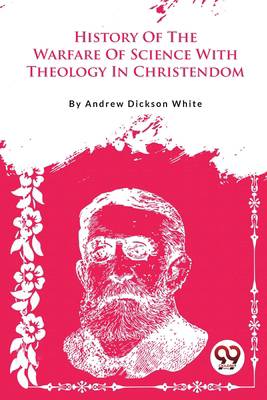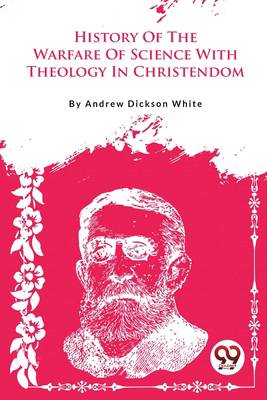
Bedankt voor het vertrouwen het afgelopen jaar! Om jou te bedanken bieden we GRATIS verzending (in België) aan op alles gedurende de hele maand januari.
- Afhalen na 1 uur in een winkel met voorraad
- In januari gratis thuislevering in België
- Ruim aanbod met 7 miljoen producten
Bedankt voor het vertrouwen het afgelopen jaar! Om jou te bedanken bieden we GRATIS verzending (in België) aan op alles gedurende de hele maand januari.
- Afhalen na 1 uur in een winkel met voorraad
- In januari gratis thuislevering in België
- Ruim aanbod met 7 miljoen producten
Zoeken
A History Of The Warfare Of Science With Theology In Christendom
Andrew Dickson White
Paperback | Engels
€ 54,45
+ 108 punten
Uitvoering
Omschrijving
Andrew Dickson White, a founding member of Cornell University, released A History of the Warfare of Science with Theology in Christendom in two volumes in 1896. The original purpose of White's 1874 lecture on The Battlefields of Science is stated in the introduction. White expanded on this idea in a book titled The Warfare of Science that same year. He traces the growing separation of science from theology in numerous domains in these books. According to science historian Lawrence M. Principe, "No credible historians of science now continue to support the warfare thesis... The foundations of the warfare thesis may be found in the writings of two persons, John William Draper and Andrew Dickson White, from the late 19th century. Scientists have known for years that White and Draper's claims are more propaganda than history, according to science historian and atheist Ronald Numbers, who wrote in a collection about errors committed by White and others. The "battle" paradigm was based on a terrible oversimplification that required all facets of the history of science and religion to fit into one ill-chosen conceptual box. As a result, many scholars ignored the vast amount of historical information that simply didn't fit into that box.
Specificaties
Betrokkenen
- Auteur(s):
- Uitgeverij:
Inhoud
- Aantal bladzijden:
- 882
- Taal:
- Engels
Eigenschappen
- Productcode (EAN):
- 9789357279956
- Verschijningsdatum:
- 1/01/2023
- Uitvoering:
- Paperback
- Formaat:
- Trade paperback (VS)
- Afmetingen:
- 152 mm x 229 mm
- Gewicht:
- 1270 g

Alleen bij Standaard Boekhandel
+ 108 punten op je klantenkaart van Standaard Boekhandel
Beoordelingen
We publiceren alleen reviews die voldoen aan de voorwaarden voor reviews. Bekijk onze voorwaarden voor reviews.









